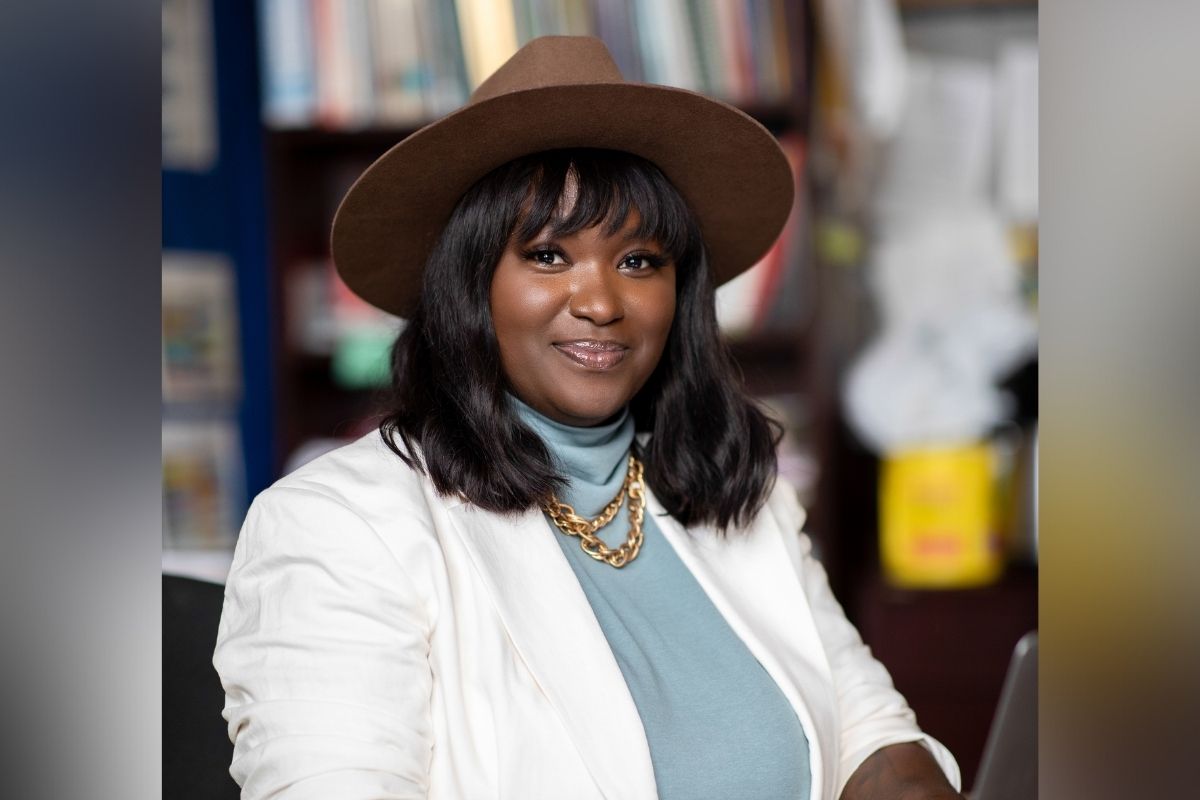Curating opportunities for community is at the crux of Kisha Howell’s work. The doctoral grad in the Curriculum & Teaching program – who walked alongside her classmates at the first in-person doctoral hooding in three years – carried that drive with her during a dissertation and two entrepreneurial ventures in recent years.
“I think the pandemic caused a lot of people to ask if they were doing what they really wanted to do,” says Howell, a former teacher and curriculum developer. “I never wanted to be an entrepreneur and I never thought about becoming an entrepreneur until the pandemic hit.”
Howell has since parlayed her spirit for building anew with insights from her dissertation. At the helm of her own educational consulting efforts, Howell offers school leaders an independent perspective on curriculum and learning. In the venture, Howell applies principles outlined in her examination of Mississippi’s Freedom Schools, which were established in 1964 by activists to offer a more comprehensive, rigorous education to approximately 2500 Black students of all ages.
Empowering Black students, Howell’s research suggests, requires a transformation of what counts as teacher education. Despite the evidence to support the value of Mississippi's Freedom Schools, to Howell, the model design by the Student Nonviolent Coordinating Committee (SNCC) and its practices have been historically undervalued in the development of education models to recenter marginalized people.
“Teacher education is guided by academia,” explains Howell, “and as a result, the value of alternative spaces [such as the freedom schools] is often not appreciated.”
But Howell is working to apply valuable lessons from those alternative spaces in her consultation, already working with numerous New York public schools. Future plans include establishing partnerships with higher ed institutions and efforts to expand consulting services into other states.
“It’s listening and seeing what people inside schools can’t see from an outside vantage point,” Howell says of her venture, which she calls The Thought Partner. “Transformation is a big part of school change. The Thought Partner guides schools through the transformation.”
For Howell, independently building a business from the ground up is not only achievable, but a fact of life embedded in her own family.
“My dad left a well-paying job at a mill, bought a bicycle and a lawn mower and rode around Winston-Salem [in North Carolina], dragging the lawn mower behind the bike, asking people if he could cut their grass,” recalls Howell. “He built that into a landscaping business that paid for my undergrad education. I grew up bearing witness to this.”
In recent years, Howell also established The Harambee Collective, which hosted support groups and workshops for Black, Latinx, indigenous, Asian and trans women to “discuss what we could do during the pandemic beyond simply surviving.”
Filling a profound gap in support resources for women of historically marginalized groups during a critical time, The Harambee Collective grew steadily through the 2020 Covid summer and variants that followed.
“Between Harambee and The Thought Partner, I couldn’t have planned the way all these things have aligned in ways I couldn’t have imagined,” Howell says. “My life has been one invitation after another. There have been so many invitations offered to me. And I am one to accept every invitation.”
